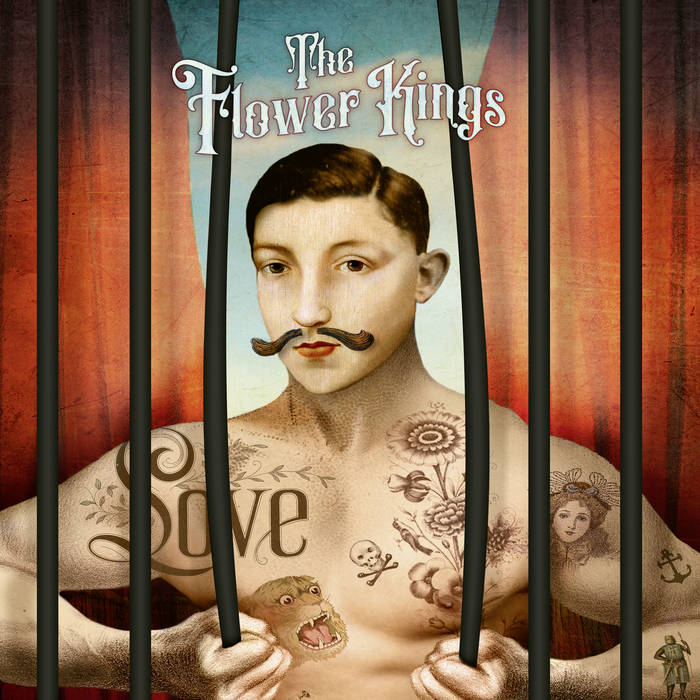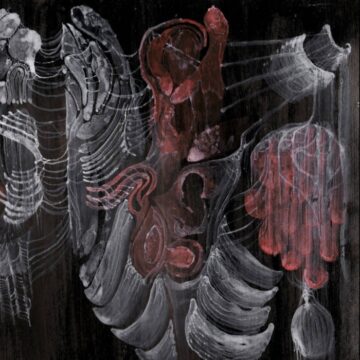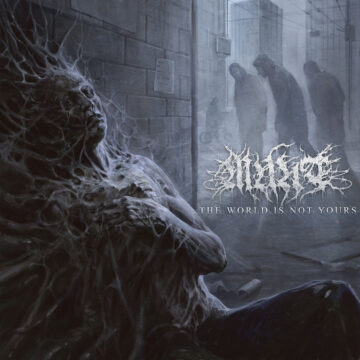Review: The Flower Kings – LOVE

Style: progressive rock, neo-prog, soft rock (clean vocals)
Recommended for fans of: Transatlantic, Genesis, Yes, Neal Morse, Spock’s Beard
Country: Sweden
Release date: 2 May 2025
In the contexts of politics, education, the visual arts, and various other disciplines, the term “progressive” has a similar connotation to terms like “forward-thinking” or “experimental”. In this tradition, and in the context of rock music, the mid-1960s saw the term “progressive” being attached to compositions with more complex structure, new and unusual instrumentation1, and virtuosic instrumental performances. The term “progressive rock” was coined in 1968 and the label was applied to some of the biggest rock bands of the next decade.
But the very act of defining a new genre of music solidifies it. Today, “progressive rock” and “experimental rock” evoke two quite different styles. Even at the end of the 1970s, when the heyday of progressive rock was nearing its end, the genre had become a caricature of itself. But as any street fair or amusement park will attest to, some people eat that shit up. Self-proclaimed “progressive” rockers The Flower Kings’ latest album, LOVE, seems—superficially, at least—to fall into those well-worn ruts of 1960s-style prog rock. But is there anything under that veneer? Was this caricature painted by Paulie, down on the Atlantic City boardwalk? Or Picasso?
LOVE ticks many of the boxes on the progressive rock checklist…
✅ synths heavily featured on basically every song
✅ multiple seven-plus-minute-long pieces
✅ unusual percussion (wood blocks, marimba, glockenspiel)
✅ instrumental and lyrical reprises across multiple tracks
…and at times is quite reminiscent of classic prog acts; “World Spinning” is like a lower-energy version of ELP’s “Hoedown”; the outro of “Burning Both Edges” could be a reference to the intro of Rush’s “Xanadu”, but without Neil Peart’s varied percussion; around 7:15 in “Kaiser Razor”, there’s a riff that sounds almost identical to the one at 3:55 in Genesis’ “Firth of Fifth”.
While The Flower Kings (consciously or otherwise) pay homage to their forebears on LOVE, they lack the compositional prowess which propelled those acts into the prog rock pantheon in the first place. On “We Claim the Moon”, a four-phrase melody is introduced early on, played in sync by guitar, bass, synth, and percussion. That exact musical idea is repeated as-is three times in the first ninety seconds of this six-and-a-half-minute track, and then abandoned wholesale—it is never repeated again. Just after this, a shorter, eight-note phrase is introduced, and that phrase is repeated twenty times throughout the remainder of the song. Neither of these two extremes is ideal. Despite the proverb which states otherwise, familiarity breeds appreciation: listeners want hooks, callbacks, and reprises. At the same time, we need a bit of variation to maintain interest. This is something that the aforementioned “Firth of Fifth” does so well: a primary melody is repeated multiple times throughout the song, but at different tempos and with different timbres as it’s played on different instruments. This keeps the listener engaged without boring them. Safe to say, The Flower Kings are no Genesis.
The dynamic range of LOVE leaves something to be desired, as well. For comparison, consider a piece like Yes‘s “Close to the Edge”: the first minute is almost entirely birdsong and chimes; then absolutely frenetic synths, driving bass, and frantic guitars; then a vocal break into a mellower, airy section; another break into an almost reggae-inspired verse, and so on. This wide variety of moods is nowhere to be found on LOVE, let alone in quick succession in a single song. Consider the introductions of a few tracks on this album: “The Elder” has a tempo of 112 bpm and begins slowly with vocals, bells, and piano; “The Phoenix” has a tempo of 120 bpm and begins slowly with strings, acoustic guitar, and vocals; “The Promise” has a tempo of 127 bpm and begins slowly with acoustic guitar and vocals. Some people might say they’ve written the same song eleven times for this album, but they’d be lying, it’s actually the same song twelve times.
Now, dear reader, you may think that it is unfair of me to compare The Flower Kings to prog rock legends like Yes, Genesis, and Rush, as I’ve done above. Let me tell you why it’s not: The Flower Kings call themselves “prog-rock legends” in their own Spotify bio. If that’s not an invitation to compare them to the greats, then I do not know what is.
All of that being said, there are a few small highlights on LOVE, but they come with caveats. The two instrumental tracks, “World Spinning” and “Kaiser Razor” are good examples. These are the two fastest tracks on the album (both exceeding 230 bpm), bringing a breath of fresh air to the otherwise steady trudge through seventy-one minutes of low-energy prog rock. “World Spinning” is a vibrant synth solo that pulls you in and then stops far too abruptly—an obvious missed opportunity. “Kaiser Razor” is also infectious: the main riff is a climb up a scale, repeated over and over, building up to… again, nothing. The song just kind of disintegrates after about two minutes. Both of these tracks feel like they are incredible seeds of ideas, which hadn’t yet been fully fleshed out before they were recorded as-is for LOVE.
The Flower Kings’ LOVE is a surface-level tribute to a nearly sixty-year-old genre of music. It lacks both the dynamism and the compositional acuity of the prior art which inspired it. LOVE is like the generic version of your favourite brand-name prog rock acts—it may contain the same ingredients, but it doesn’t have quite the same flavour. After LOVE, you’ll soon find yourself reaching for “real” progressive rock to get that imitation taste out of your mouth.
Recommended Tracks: Kaiser Razor, We Claim the Moon
You may also like: Neal Morse Band, Pattern-Seeking Animals, Jacob Roberge, Cosmic Cathedral
Final verdict: 4.5/10
Related links: Bandcamp | Spotify | Official Website | Facebook | Instagram | Metal-Archives
Label: InsideOutMusic – Bandcamp | Facebook | Official Website
The Flower Kings is
- Mirko DeMaio (Drums, Percussion)
- Lalle Larson (Grand Piano, Rhodes Piano, Hammond B3 & Synthesizers)
- Hans Fröberg (Vocals)
- Michael Stolt (Bass, Moogbass, Vocals)
- Roine Stolt (Vocals, Electric & Acoustic 6 & 12-string Guitars, Ukulele)
LOVE also features
- Hasse Bruniusson (Percussion)
- Jannica Lund (Vocals)
- Aliaksandr Yasinski (Accordion)
- The Moog synthesizer, a staple of 1970s progressive rock, only began to be mass-produced in 1967, and was therefore genuinely cutting-edge at the time. The Doors’ “Strange Days” (1967) is an early example of its usage. ↩︎



1 Comment
Review: Magic Pie - Maestro - The Progressive Subway · May 27, 2025 at 14:00
[…] Progressive rock (clean vocals)Recommended for fans of: Deep Purple, Yes, The Flower Kings, Kansas, Spock’s BeardCountry: NorwayRelease date: 16 May […]